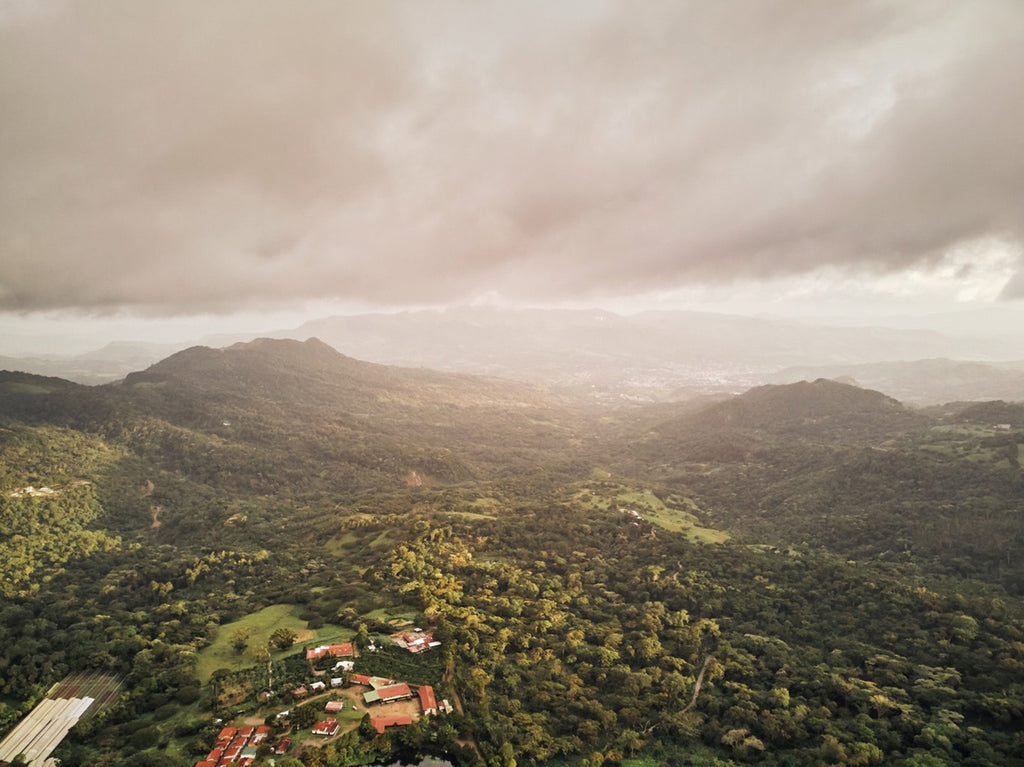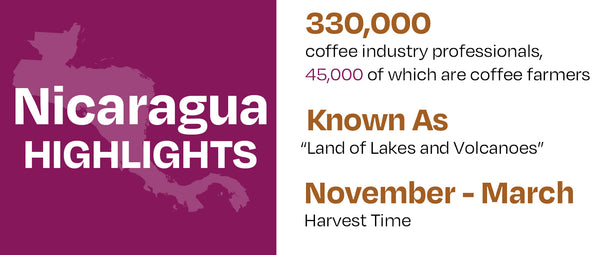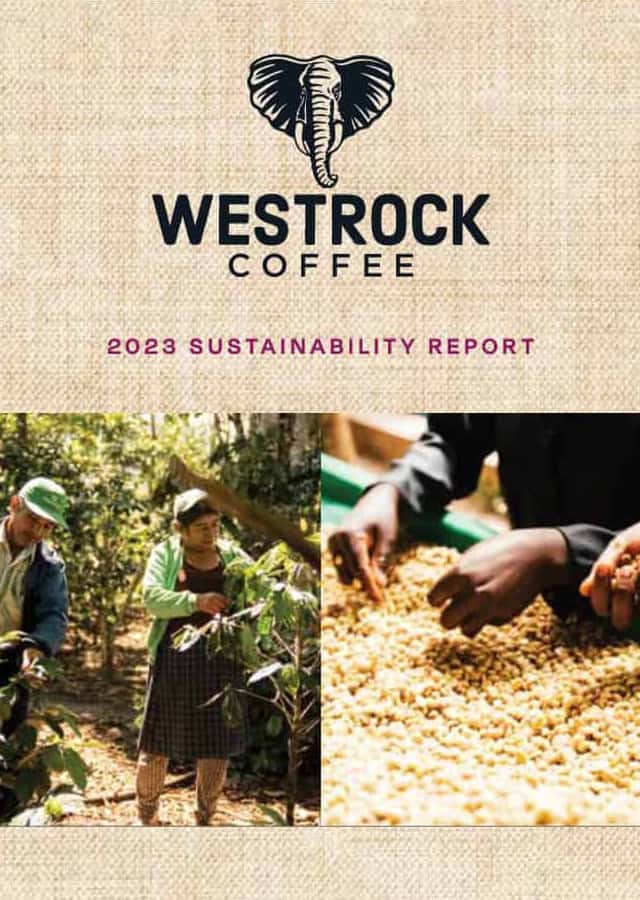June 10, 2024
Next up in Westrock Coffee’s coffee origin spotlight is the largest country in Central America, Nicaragua. Composed of Pacific lowlands, central highlands, and Caribbean lowlands, Nicaragua is host to a variety of climates and ecosystems. Coffee production happens throughout the country, but Jinotega, Matagalpa and Nueva Segovia are the main coffee cultivation zones. These areas are suitable for growing coffee as they have rich volcanic soils and humid tropical climates.


Coffee cultivation in Nicaragua began in the 1800’s and as the industry developed, production rose to 150,000 bags annually in the 1900’s. However, the coffee industry’s trajectory in Nicaragua was interrupted in the 1950’s by political instability and hurricanes and didn’t begin to recover until the 1990’s. Although the political climate calmed, Nicaraguan coffee producers faced another obstacle, low coffee prices. The extreme difficulty of making money in the coffee industry led to the collapse of several national banks and a mass exodus of Nicaraguans who went to other countries seeking greater opportunity.

Today, there are many coffee producers who have remained dedicated to their farms despite the many challenges. Nicaragua is the 12th largest coffee producing country in the world, supported mostly by small-holder farmers who farm on 15 hectares or less. These farmers have been able to increase the country’s production to more than 2.5 million bags of coffee a year despite not having the funding they need to invest in improving their farms and infrastructure. It is thanks to their fortitude, that many Westrock Coffee Company customers are able to drink Nicaraguan coffee in their favorite blends.

Westrock Coffee has the pleasure of working with 310 Nicaraguan coffee farmers through Raíz Sustainability™ and another 2,068 through Farmer Direct Verified®. One particularly exemplary Raíz farmer is Ana Maribel García Rizo. Doña Maribel was named Westrock Coffee’s social champion for her unwavering dedication to being a champion for her employees and holistic farm management – with a vision to create living and working conditions in which her team members can thrive, and a constant eye on environmental protection. Doña Maribel empowers her employees, goes beyond best practices, takes time to teach and train them while treating them with respect. Beyond her own employees, she eagerly pilots new best practices and acts as an example to other coffee farmers in her community. Doña Maribel is the primary decision maker on her farm, called Magari, a rarity for a woman in many coffee producing countries and a well-earned title, as she is also a trained agronomist. She has used her agency to build a thriving farm – increasing her productivity 60% since joining Westrock Coffee’s Raíz Sustainability in 2019.

At Westrock Coffee, our flavor experts love Nicaraguan coffee like Ana Maribel’s for its bright, lemony acidity, and its savory herbal notes.





